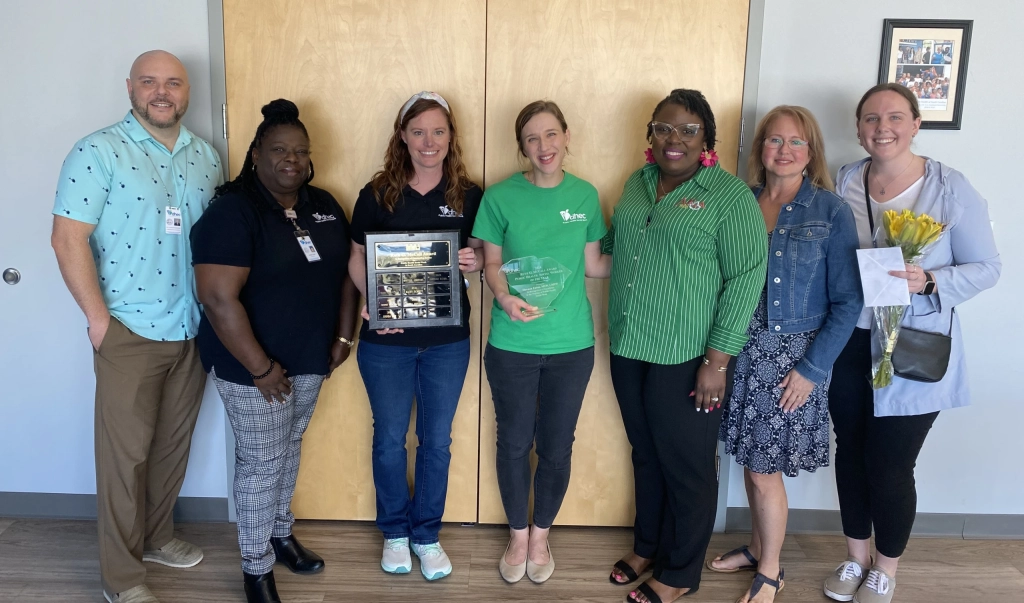
Air Quality Awareness Week highlights resources that increase air quality awareness and encourages people to take action and incorporate air quality knowledge into their daily living.
Continue reading
Air Quality Awareness Week highlights resources that increase air quality awareness and encourages people to take action and incorporate air quality knowledge into their daily living.
Continue reading
This year, HUD is recognizing April as National Healthy Homes Month. What is a “Healthy Home”?
Continue reading
Kacey Schmitt, DHEC Director of Social Work, along with Lenora Talley, DHEC Upstate Social Work Manager, and Tamika Melette, Lowcountry Social Work Manager, presented the Ruth G. McCall Public Health Social Worker of the Year Award to Hannah Eaton, Lowcountry Maternal Child Health (MCH) Social Worker at the Social Work Day celebration in March.
Continue readingNational Public Health Week (NPHW) takes place April 1-7 this year, and this year’s theme is “Protecting, Connecting and Thriving: We Are All Public Health.”
Public health is more than just health care. It includes building communities free from pollution, with safe food and water and strong personal relationships.
Continue reading
This Women’s History Month we are featuring current and former DHEC employees who have made an impact in our state.
Today we feature, Shirley James, South Carolina’s first Nurse Practitioner.
Continue reading